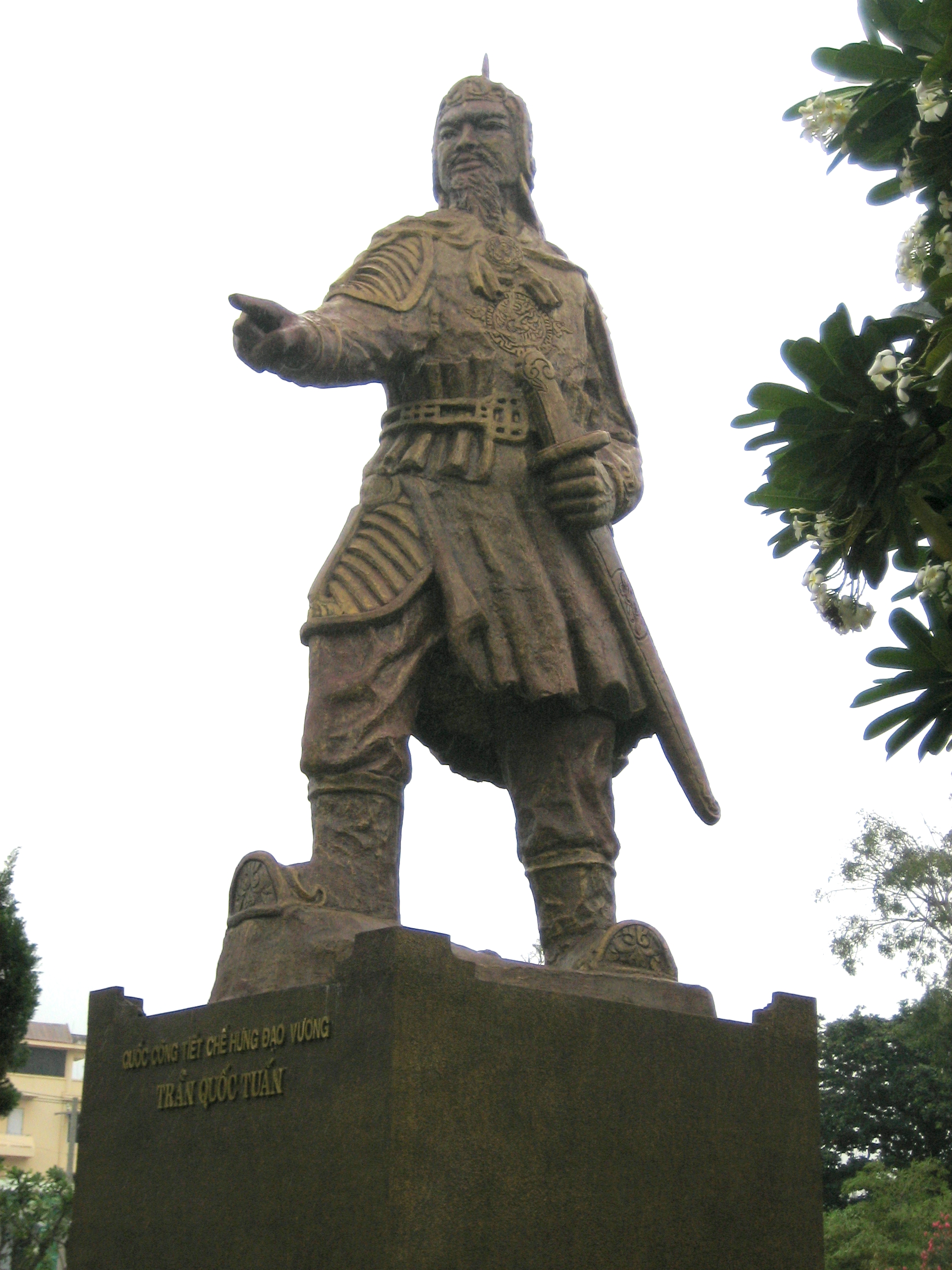|
Thuật Hoài
Thuật hoài (literally: Express) is one of two poems which are still exist of Phạm Ngũ Lão (1255-1320), a famous general of Trần dynasty The Trần dynasty (Vietnamese language, Vietnamese: Nhà Trần, chữ Nôm: 茹陳; Vietnamese language, Vietnamese: triều Trần, chữ Hán: ikt:朝ikt:陳, 朝wikt:陳, 陳), officially Đại Việt (Chữ Hán: 大越), was a List .... Introduction This is a seven-word four-line poem (Vietnamese: thất ngôn tứ tuyệt) written by Hán word. Its composition time is not known.It is thought to be composed in second Mongol Resistance (1285). Notes {{DEFAULTSORT:Thuat hoai Vietnamese poems ... [...More Info...] [...Related Items...] OR: [Wikipedia] [Google] [Baidu] |
Trần Dynasty
The Trần dynasty (Vietnamese language, Vietnamese: Nhà Trần, chữ Nôm: 茹陳; Vietnamese language, Vietnamese: triều Trần, chữ Hán: [wikt:朝]wikt:陳, 朝wikt:陳, 陳), officially Đại Việt (Chữ Hán: 大越), was a List of Vietnamese dynasties, Vietnamese dynasty that ruled from 1225 to 1400. The dynasty was founded when emperor Trần Thái Tông ascended to the throne after his uncle Trần Thủ Độ orchestrated the overthrow of the Lý dynasty. The Trần dynasty defeated three Mongol invasions of Vietnam, Mongol invasions, most notably during the decisive Battle of Bạch Đằng (1288), Battle of Bạch Đằng River in 1288. The final emperor of the dynasty was Trần Thiếu Đế, Thiếu Đế, who was forced to abdicate the throne in 1400, at the age of five years old in favor of his maternal grandfather, Hồ Quý Ly. The Trần improved Chinese gunpowder, enabling them to Nam tiến, expand southward to defeat and vassalize the Champa. The ... [...More Info...] [...Related Items...] OR: [Wikipedia] [Google] [Baidu] |
Phạm Ngũ Lão
Phạm Ngũ Lão (范五老, 1255–1320) was a general of the Trần dynasty during the reigns of three successive emperors Trần Nhân Tông, Nhân Tông, Trần Anh Tông, Anh Tông, and Trần Minh Tông, Minh Tông. His talent was noticed by Prince Hưng Đạo Trần Quốc Tuấn who married his adopted daughter to Phạm Ngũ Lão and recommended him for the royal court. Renowned as a prominent general in battlefield, Phạm Ngũ Lão was one of the few commanders of the Vietnamese army during the second and third Mongol invasions of Vietnam, Mongol invasion who did not come from the Trần clan. After the war of resistance against the Yuan dynasty, Phạm Ngũ Lão continued to participate in numerous military campaigns of the Trần dynasty in which he often succeeded. Today, Phạm Ngũ Lão is considered as one of the most capable military commanders of the Trần dynasty and within the history of Vietnamese commanders along Trần Hưng Đạo, revered as Đức Thá ... [...More Info...] [...Related Items...] OR: [Wikipedia] [Google] [Baidu] |
Chinese Language
Chinese ( or ) is a group of languages spoken natively by the ethnic Han Chinese majority and List of ethnic groups in China, many minority ethnic groups in China, as well as by various communities of the Chinese diaspora. Approximately 1.39 billion people, or 17% of the global population, speak a variety of Chinese as their first language. Chinese languages form the Sinitic languages, Sinitic branch of the Sino-Tibetan language family. The spoken varieties of Chinese are usually considered by native speakers to be dialects of a single language. However, their lack of mutual intelligibility means they are sometimes considered to be separate languages in a Language family, family. Investigation of the historical relationships among the varieties of Chinese is ongoing. Currently, most classifications posit 7 to 13 main regional groups based on phonetic developments from Middle Chinese, of which the most spoken by far is Mandarin Chinese, Mandarin with 66%, or around 800&nb ... [...More Info...] [...Related Items...] OR: [Wikipedia] [Google] [Baidu] |
Zhuge Liang
Zhuge Liang () (181September or October 234), also commonly known by his courtesy name Kongming, was a Chinese statesman, strategist, and inventor who lived through the End of the Han dynasty, end of the Eastern Han dynasty ( 184–220) and the early Three Kingdoms period (220–280) of China. During the Three Kingdoms period, he served as the Chancellor (China), Imperial Chancellor (or Prime Minister) of the state of Shu Han (221–263) from its founding in 221 and later as regent from 223 until his death in September or October 234. He is recognised as the most accomplished strategist of his era. His reputation as an intelligent and cultured scholar grew even while he was living in relative seclusion, earning him the nickname "Wolong" or "Fulong" (both meaning "Sleeping Dragon"). Zhuge Liang's methods of administration drew both from Legalism (Chinese philosophy), Legalism as well as Confucianism. He was critical of the Legalist thought of Shang Yang, and advocated benevole ... [...More Info...] [...Related Items...] OR: [Wikipedia] [Google] [Baidu] |


